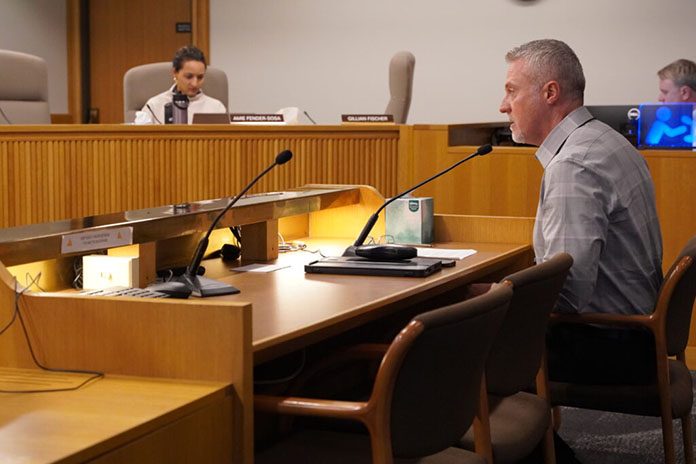
By Ben Botkin/Oregon Capital Chronicle
State Sen. Floyd Prozanski is searching widely for ideas that will shape Oregon’s response to the drug addiction crisis to build accountability into the system.
The Eugene Democrat chairs the state Senate Judiciary Committee, and he’s planning to have a bill in the 2024 session that would recommend changes to Measure 110, the voter-passed law that decriminalized possession of small amounts of hard drugs and put a share of cannabis revenue into programs to help addicts.
The plan to tweak Measure 110 comes amid a deadly epidemic of fentanyl overdoses and hundreds of deaths a year and growing criticism that the law is not getting people into treatment as intended.
On Wednesday, he listened to law enforcement officials speak to his committee about struggles to combat open drug use and addiction, a problem in Portland and smaller cities like Grants Pass. In late October, he will be part of an Oregon group of lawmakers, advocates and others that will travel to Portugal, a nation with a two-decade history of drug decriminalization work.
Prozanski also is gathering information from other states to look for useful ideas to incorporate into Oregon’s Measure 110, which faces a well-funded effort to recriminalize hard drugs and require treatment.
In an interview with the Capital Chronicle, Prozanski said he’s in a learning phase. He said it’s too soon to know what changes might be made. But he’s clear on two points: Oregon cannot return to the old way of doing things and put drug addicts in prison. And the state also needs to hold people accountable and look for ways to get them into treatment, he said.
“We need to look at things outside of the traditional war on drugs approach,” Prozanski said. “That’s been going on for 50 years. And I ask everyone, so what do we have to show for this? And it’s 50 years and how many billions, if not trillions, of dollars have been spent?”
He’s heard plenty of ideas, ranging from confining addicts for 72 hours to direct them to detox and treatment services when they start going through withdrawal to a program that reaches out to people right after they survive a near-fatal drug overdose with an offer of help.
Prozanski said those and other ideas are “on the table.”
“I have not done all the background research, and that’s why I’m not going on a lot of TV shows and everything because for me, what we have to do right now is do our due diligence,” he said.
Police officer perspective
Like Prozanski, law enforcement officials who spoke before his committee want accountability. Measure 110 put in place a citation system that allows police to give $100 citations to people with low-level drug possession. The fee is waived if they take an assessment of their needs.
But those tickets rarely lead to assessments, Jackson County Sheriff Nate Sickler told the panel.
“We’ve seen a massive increase in open-air drug use in our communities,” said Sickler, also a co-petitioner on a ballot initiative to prohibit public drug use and make possession of hard drugs a misdemeanor. “We see our communities impacted in a negative way because of this. We see needles left in parks, thoroughfares and other places that present hazards to our community members.”
Sickler stopped short of entirely blaming Measure 110 for the rising crime in his southern Oregon county, but said he believes it’s a “very strong contributor.”
Grants Pass Police Chief Warren Hensman told lawmakers that law enforcement wants to be part of the solution and help communities weary of widespread drug addiction. He said the system needs to jolt people into seeking treatment.
“I am not for one second saying we need to send people to prison because they suffer from illness or substance use disorder,” he said. “What I am saying is we need some sort of a consequence. Maybe that’s a day or two in our county jail to provide some sort of an incentive, some sort of a kickstart, some sort of encouragement to get people to seek the aid that is here.”
Hensman, like others, said Oregon needs more facilities to help people in recovery, including detox centers where people can receive care while going through drug withdrawal.
Whatever changes are made, public health needs to remain at the forefront, Prozanski said.
“I, too, want to be moving into a model that the voters have agreed to, and that is to use the public health and medical model to deal with addictions and not to use our jail system and our criminal justice system,” he said. “What I don’t think is appropriate at this point is to throw the baby out with the bathwater and go back to a system that has been shown this has not worked right.”
This story first appeared in the Oregon Capital Chronicle.










